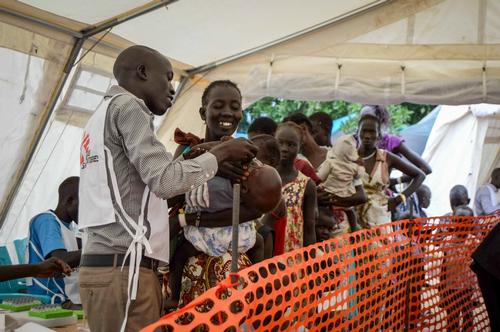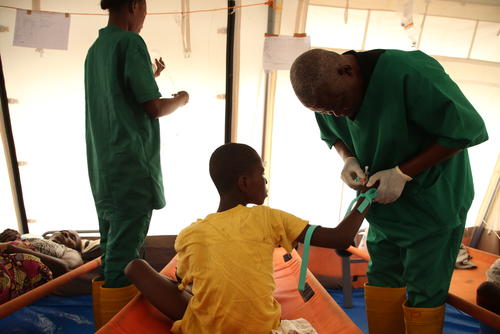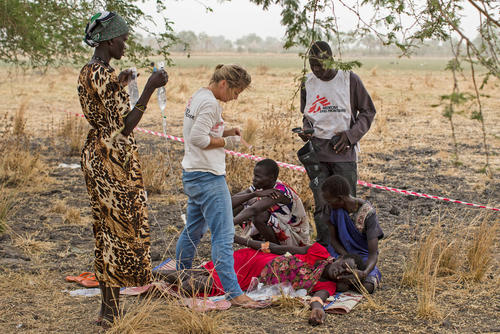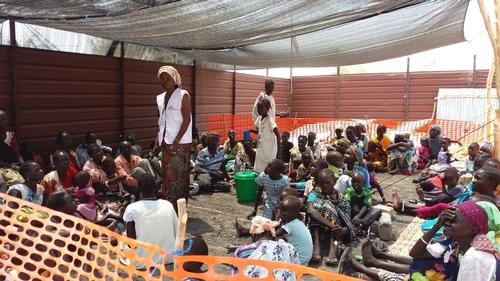A new cholera control strategy using a single-dose of oral vaccine instead of two is sufficient to protect against the deadly disease during an outbreak, according to a study published by MSF in the Lancet Global Health this week.
To evaluate the effectiveness of the new strategy first used in Juba, South Sudan, a study was conducted by MSF, in collaboration with its research arm Epicentre, the Ministry of Health, John Hopkins University and the World Health Organization. The study found that the single-dose vaccine was 87.3 per cent effective in reducing cholera for up to two months among the nearly 900 people who took part in the study.
While oral vaccines have proven effective in preventing cholera during outbreaks, current two-dose strategies are logistically challenging to implement during emergencies. In addition, the global shortage of oral cholera vaccine currently makes it impossible to protect the more than two billion people at risk of the disease. Fewer than four million doses of oral cholera vaccine were produced in 2015.
As part of a cholera outbreak response in Juba in July 2015, MSF, in collaboration with local health authorities, vaccinated 160,000 people with a single-dose of oral vaccine. This was the first time a single dose of oral vaccine had been used in a mass vaccination campaign. The decision was taken as there were insufficient doses available to vaccinate all of the at-risk population with two doses, and evidence from previous studies suggested that a single dose might provide sufficient short-term protection.
In April 2016, MSF also vaccinated 423,000 people in Lusaka, Zambia, in the largest ever single-dose oral cholera vaccination campaign to take place during an outbreak.
"The results of the study are very promising," says Dr Iza Ciglenecki, MSF Operational Research Coordinator. "However, more research is needed, as we still don't have full knowledge of the length of the coverage after two months. Nevertheless, this could be a milestone in cholera protection, as it may allow for the prevention of unnecessary illness and death during outbreaks. Given the lack of available vaccines, this is very good news."
Cholera causes the death and illness of thousands of people globally every year, mainly affecting the most vulnerable and poor. The disease is endemic in many parts of the world and outbreaks often occur during emergencies such as natural disasters and conflicts, where poor or dense living conditions contribute to the spread of the disease.






